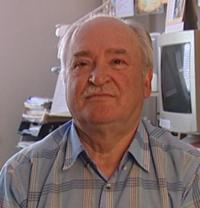You are wrong if you think you are citizens of Czechoslovakia; You are citizens of the Soviet Union

Stáhnout obrázek
Štefan Kruško was born in 1941 in the village of Chmeľová in Bardejov district. He comes from the peasant family of the Rusyn origin that among many other families believed the alluring words about a better life in the Soviet Union. They left for Ukraine when Štefan was only six years old. They found their replacement home in the village of Hrušvica, where also other resettled Slovak and Czech families lived. Štefan attended an elementary school there and later also studied the secondary school of nursing. After finishing his studies he started to work as an orderly and as a chief of the medical centre in the village. He got married there and with his wife, resettled Slovak from the village of Lenartov, they had two children. In the year 1965 they went to visit their relatives in Slovakia for the first time; however, they had no idea about what this decision would mean for them. They really liked being back to Slovakia, so at the consulate they gradually prolonged their stay there up to six months. They lived and worked in Svidník but as they didn‘t get permission to move to Slovakia, they had to return. After their return to Ukraine an unpleasant surprise was awaiting them. Štefan was accused of treason for leaving the republic and prohibited from working in the Rivne region and thus the family had to move to the neighbouring area. They did their best to get a permission to move to Slovakia and after many formal obstacles they eventually managed to get it in the year 1967. They settled in Prešov and along with his wife they found job in a health service. Later, the third child was born into their family. Štefan went through several positions and jobs, but after having certain health problems, he had to accept the disability pension even though he was quite young. He has always felt a desire to know the truth about the fate of people displaced in a post-war period, so after his return to homeland, he engaged in research of these issues in Slovak, Czech, Ukrainian, and Russian archives. He devoted himself to the research activities for more than 40 years. He even founded the Repatriates Coordination Committee in the Slovak Republic with the only aim to help Slovak natives, who had been displaced. He is the author of many books of non-fiction literature, compiler and editor of various cultural-artistic collections of works and booklets and holder of an honour for voluntary community service called „Srdce na dlani - 2000 (Heart on the sleeve - 2000)“.
